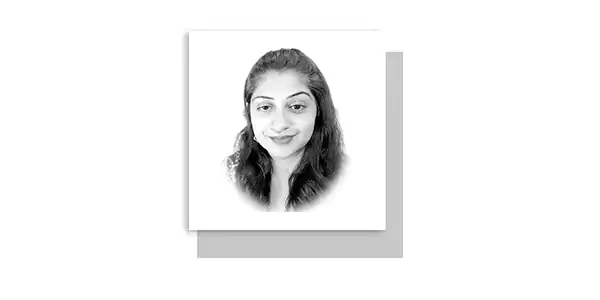SOME realities of this world are so disturbing that putting them into words feels like a burden.
Mob lynching in Pakistan is one such horror—an act of collective savagery, often justified under the pretence of faith, yet fundamentally violating the very essence of religion itself.
The weight of this reality is unbearable, yet a recent drama has forced us to confront it, proving that art can spark conversations that society hesitates to have.
Mob lynching has become a grave human rights crisis in Pakistan, frequently fuelled by blasphemy allegations. It takes nothing more than an accusation—sometimes without even a basic understanding of religious tenets—to incite a frenzy of violence. What follows are the gruesome images and videos we see too often: faceless crowds, rage-driven brutality, and the complete erasure of justice. Over 1,400 individuals have been falsely accused under blasphemy laws, predominantly from religious and ethnic minorities.
Experts argue that these incidents are not merely acts of spontaneous violence but deliberate mechanisms of control, used to target marginalized communities. The accused often have no chance to defend themselves, and law enforcement, rather than intervening, frequently stands by as silent spectators.
With every new case, the cycle of impunity tightens, emboldening those who believe they can act without consequence. Take the haunting case of brothers Mughees and Muneeb Butt, who were killed, hanged, and mutilated in Sialkot as police and emergency responders stood by. Or the horrifying 2021 lynching of a Sri Lankan manager, an act so barbaric that even the court later emphasized Islam’s strict prohibition against disgracing the dead—let alone burning a human body. Yet, what difference did that ruling make? The perpetrators may have been sentenced, but the collective mindset remains unchanged. Those claiming to defend religion are, in reality, setting its very foundations on fire.
Consider this: between 1948 and 1978, only 11 cases of mob lynching were recorded. But from 1987 to 2021, that number surged by an astonishing 1,300%. How does a society lose its grip on basic humanity so completely? While awareness campaigns and legal reforms are crucial, the power of storytelling cannot be underestimated. Art has the ability to pierce through indifference, forcing people to see what they would rather ignore. The recent drama Tan Man Neel o Neel did just that. Its gut-wrenching finale depicted mob violence fuelled by a false blasphemy allegation, culminating in a scene so harrowing that it left audiences shaken. The closing montage—featuring real-life victims of such brutality—was not just a dramatic choice; it was a call to reflection, to outrage.
While laws can be amended and policies reformed, the true battle lies in changing mindsets. Mob lynching is not just a legal failure—it is a societal disease, fuelled by ignorance, intolerance, and the dangerous manipulation of faith. How many more innocent lives must be lost before we recognize that silence is complicity? Art, like Tan Man Neel o Neel, has proven its power to spark critical conversations, but will that be enough? Until we dismantle the toxic culture of vigilante justice and demand accountability, the cycle of violence will persist.
—The writer is contributing columnist, based in Islamabad.
(mehr.jan1717@gmail.com)










